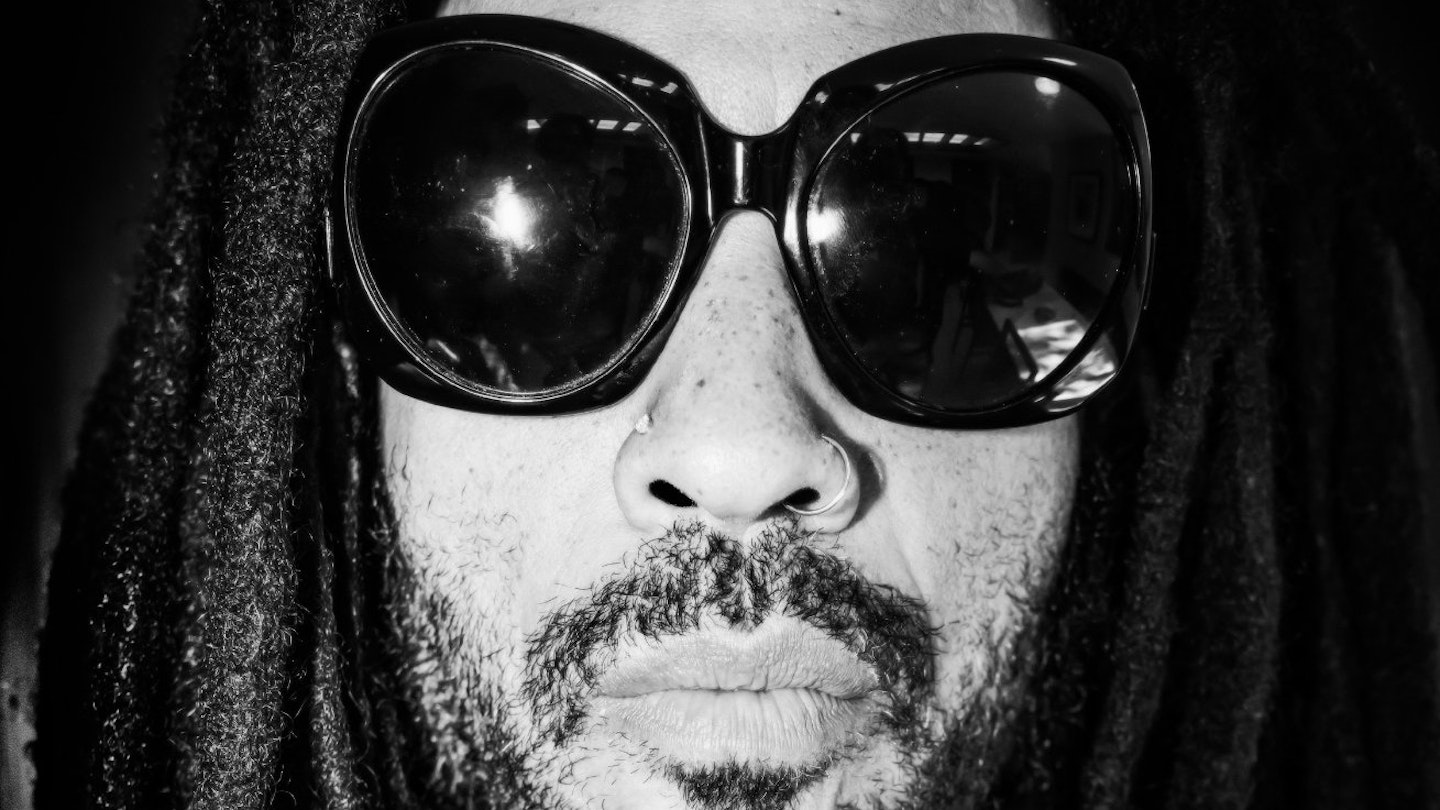Portrait: Mathieu Bitton
Raised in New York by showbusiness parents Sy Kravitz, his television producer, Russian-Jewish father and his African-American-Bahamian mother, the actress Roxie Roker, as a child Lenny Kravitz flitted between his maternal grandparents in Brooklyn’s Bedford-Stuyvesant and the family home in uptown Manhattan. When her boy was 10, Roxie secured a lead role on the ground-breaking inter racial comedy The Jeffersons and the pair decamped to Los Angeles. Lenny joined the California Boys Choir (his first gig: Mahler ’s third with the LA Philharmonic at the Hollywood Bowl) and after being inspired by seeing The Jackson 5 at Madison Square Garden, began the journey to 1989 debut LP Let Love Rule, loosely based around his relationship with Cosby Show actor Lisa Bonet and the arrival of their daughter, Zoë.
35 years on, Kravitz is currently putting the finishing touches on his 12th album Blue Electric Light. In this extract from MOJO’s exclusive interview, Kravitz talks about his childhood meetings with Miles Davis and Duke Ellington, working with Madonna, Mick Jagger, Michael Jackson and more…
Given your parents’ jobs and roles as night people, your upbringing could have been feral.
It could, but it wasn’t. I come from a life of discipline. My mum gave me loving discipline and the values of hard work. From my dad, there was militaristic discipline.
How does an infant cope with seeing their mum on-stage, being different people every night?
It was surreal to see her playing these characters when I was at a very young age. I was like, Who’s that? It was amazing to watch her transform into somebody else, but that’s how I grew up.
Few five-year-olds have Duke Ellington sing Happy Birthday to them…
To me it was normal. He was just this nice guy with a white suit, slicked back silver hair and a goatee who was a friend of my parents. When I saw him play on my fifth birthday, his orchestra stopped playing. He said, “There’s a young man in the audience and it’s his birthday…” Then, I’m sat on his lap and they start playing Happy Birthday. Only years later, did I go, Wow… I didn’t realise what an education I was having.
Miles Davis didn’t hang out with many pre-teens, either did he?
To everyone else, he must have been ‘Miles Davis’, but to me this guy was the husband of Cicely Tyson, my mum’s best friend and my godmother. I knew he played the trumpet, but I didn’t know what he stood for: it must have been weird for him. I just liked the way he spoke to me: (uncannily accurate impersonation) “Lenny… how you doin’?” When I met people at high school who idolised him, I was, Oh shit…
Once you started your own music career you began collaborating straight away. A year after [debut album] Let Love Rule, you and Ingrid Chavez wrote Justify My Love for Madonna…
Oh, I knew that track wasn’t for me. I’d met Madonna out in the clubs and we used to have fun. I called her and said, I have a Number 1 song for you. She said, “No you don’t.” I jumped in a cab with my cassette. She’s very playful and funny, and says, “Where’s my Number 1 song?” I played it twice. She says, “Let’s record it,” although she wouldn’t come to Hoboken where I was recording. It was her biggest hit for many, many, many, many years. When the Jean-Baptiste Mondino video was banned by MTV, the label sold it as a video cassette and it exploded. People were lined up around the block buying these things.
You worked with Mick Jagger on two of his solo albums. Did you feel he was a bit lost without the Stones?
No, no, no. Mick enjoyed his solo time. For him, it was a holiday. We collaborated on Bill Withers’ Use Me for [1993’s] Wandering Spirit, but we wrote God Gave Me Everything on Goddess In The Doorway [2001]. I had the melody, but no words apart from a bit of chorus. He came to my Roxie studio in Miami. I mumbled some words. He took a pen and paper and 30 minutes later had the lyrics. He goes into the vocal booth and starts singing from top to bottom perfectly. I say, My God, that was amazing, and he says, “We’ll get the real vocal later.” He tried over and over again. Of course we used the original.
-
READ MORE: Mick Jagger's best songs ranked
Seeing the Jackson 5 at Madison Square Garden as a six-year-old changed your life. Working with Michael Jackson must have felt like completing the circle?
Michael was doing [2001 album] Invincible and John McClain at his label asked if I had anything for “Mike”. I hadn’t, but I immediately wrote (I Can’t Make It) Another Day, played all the instruments and did a guide vocal. Michael came into the studio. While I play music loud, he played it louder than anything I’ve ever heard. He said he loved it and started dancing. He did the vocal straight away and insisted I stop him if it wasn’t right. My head’s going back to when I was six years old at MSG, but we’re just two guys working. When he said, “I haven’t had this much fun since Quincy,” I took at as the biggest compliment of my career.
Why didn’t it make Invincible?
John thought it was too jarring for a groovy mellow record with Butterflies and those beautiful songs. Then Michael died. A decade on, (I Can’t Make It) Another Day appeared on [posthumous 2010 album] Michael, which was an, um, interesting album. I wish it had been on Invincible.
“I’ve used my gifts to amplify love…” Read the interview in full only in MOJO 365. More information and to order a copy HERE!
Lenny Kravitz’s new album Blue Electric Light is out May 24 on BMG.
Pre-order: Amazon | Rough Trade | HMV
